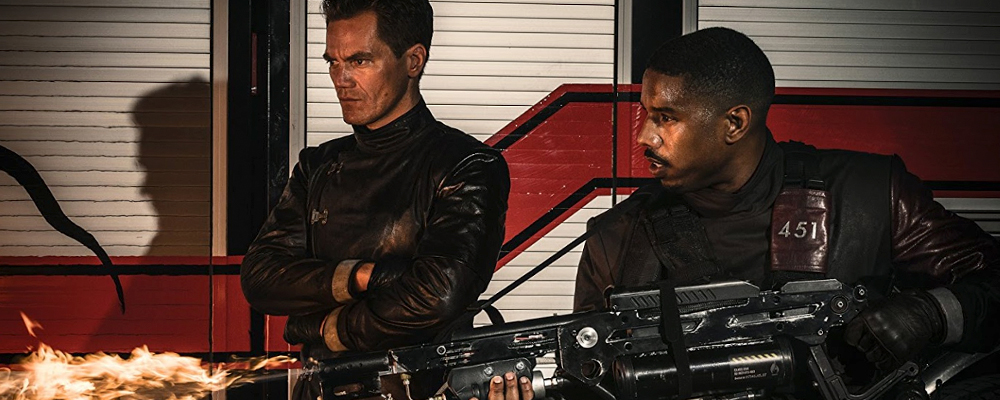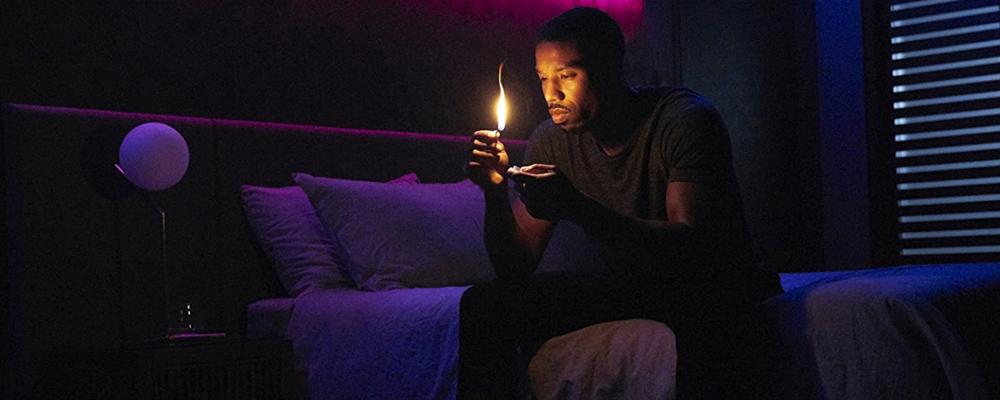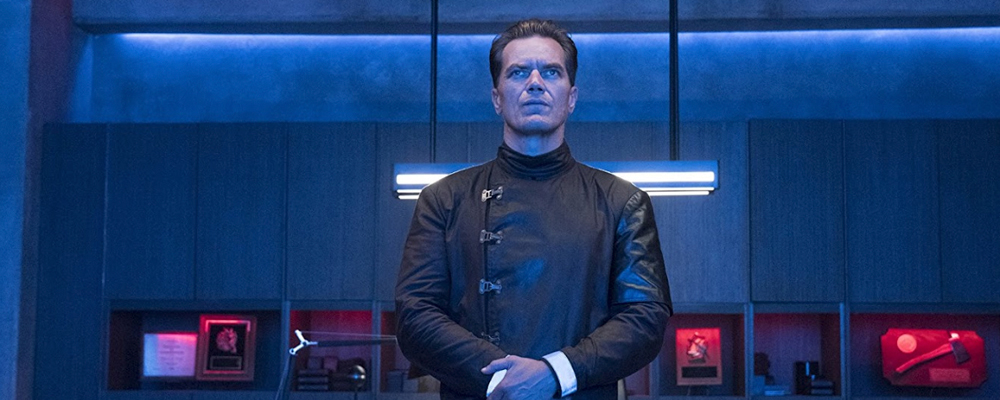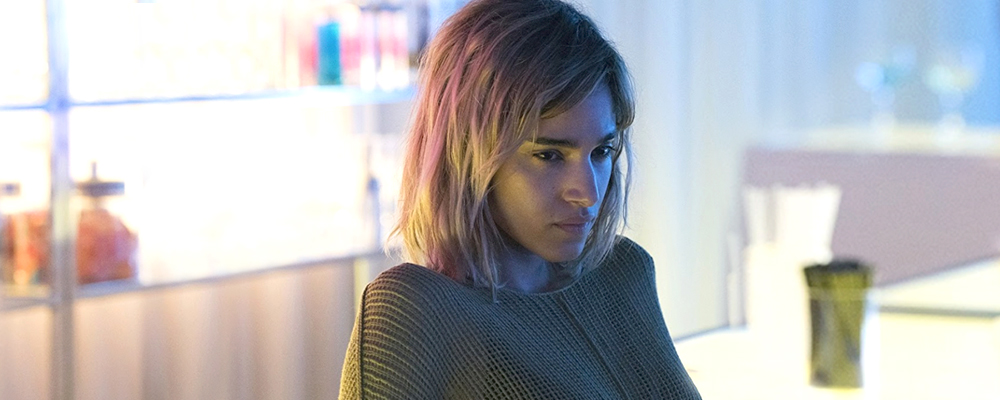HBO Updates ‘Fahrenheit 451’ for Our Paranoid Times With Loose Adaptation
Adi Mehta
Few novels may seem as prescient as Ray Bradbury’s “Fahrenheit 451.” Set in a world where books have been burned, language is being distorted and history rewritten, it is the perfect dystopian fantasy for a time when everyone debates the meaning of “fake news.” HBO’s new adaptation is a mixed offering full of visual style, some good performances but an absurdly short running time. Curious how in the age of peak TV, when authors like Margaret Atwood and Philip K. Dick are given season-long adaptations, this essential piece of English class curriculums gets a measly 100 minutes. As a result key material is omitted, ideas get lost, and we’re left with some enticing flashes of glory.
It is a near and dark future in which books have been banned and burned. A second civil war has ravaged the United States and the blame is put squarely on the different, clashing ideas that eventually led to conflict. “Firemen” are the new police force ensuring order. Captain Beatty (Michael Shannon) leads a firemen crew in which Guy Montag (Michael B. Jordan) has risen in the ranks to be his number two. They receive a tip about a house housing many books and during the raid, the owner of the dangerous materials sets herself alight, shocking Montag into asking serious questions. He steals a copy of Dostoevsky’s “Notes from the Underground” and begins to soak in its language. Montag soon makes contact with Clarisse (Sofia Boutella), who forms part of an underground resistance movement preserving and memorizing books. Montag must now keep his friends and new knowledge secret from Beatty, who will not hesitate to burn him if he uncovers his betrayal.
Directed by Ramin Bahrani, a visual stylist who made his name with the exhilarating 2007 movie “Chop Shop,” the best feature of “Fahrenheit 451” is its look. Lit by Kramer Morgenthau, who has worked on “Game of Thrones,” the movie conjures a frightening vision of a world that is technologically advanced, but intellectually regressed back into the Dark Ages. In this future everything is processed visually. Skyscrapers transmit video imagery, the news is broadcast with the language of reality television. The opening credits are a brilliant montage of classic works by Gabriel Garcia Marquez, Shakespeare, J.K Rowling and others going up in flames. Anyone who loves books will cringe, or feel utter horror in the moments where Beatty and his squad aim their flame throwers at piles or stacks of oh so beautiful and bound paper. Bahrani stages baroque moments where dystopia becomes very vivid. Beatty and Montag speak at a school assembly, indoctrinating children in the terrors of books. Later they interrogate a subversive, Shannon spouting false history about Benjamin Franklin being the first firefighter. During these scenes the movie stays close to the spirit of Bradbury’s novel. In another memorable moment a boy shows off to Montag how he has memorized an entire forbidden library of books, quoting Marcel Proust by page and line number.
Bahrani and HBO’s great mistake is to cut the legs off the material. Even the 1966 version by Francois Truffaut, while imperfect, still managed to give the story a little more breathing space. “Fahrenheit 451” is a novel of ideas, driven more by language than by action. Bradbury was of course a superb author of exciting science fiction, but he was not churning out dime novels either. Bahrani is too obsessed with proving this story can work as a quick thriller, rushing from one moment to the next. The result is material that begins to journey into great moments then abruptly shifts gears. When Montag begins to read “Notes from the Underground” we see his emerging transformation, especially when Bahrani lets us hear a taste of Dostoevsky’s language. But soon enough Montag is jumping into a van with Clarisse and becoming a full rebel. The film never allows his journey to develop properly. There is no struggle or conflict, the man simply cracks open a book and all of his indoctrination washes away in a flash. By some convenient and lazy twists (someone just happened to be standing facing the parking lot at the right time), Montag’s cover is blown. The world itself feels terribly condensed. We never see the population of the future, how the average citizen lives and functions in a world without literacy. We see silhouettes of crowds who watch the skyscraper screens, shouting abuse at perceived traitors, but unlike “Blade Runner” or “V for Vendetta,” there is never a window into the way this society functions. Bahrani, who also wrote the script with Amir Naderi, trades terror and tension for some unnecessary additions to the story, such as some sort of memory device or DNA strand you can quickly inject into a bird to set it loose and there you have it, knowledge flies away and survives.
Still, this movie has some good things in it, in addition to the general idea there are the strong performances by Jordan and Shannon, who make a convincing team. Shannon is an authoritarian menace as Beatty, loyal without question to an irrational order. He keeps small written scrolls to himself, secretly practicing with a pen the writing of phrases and thoughts, yet he never hesitates to carry out a burning. He fits in completely in this world where fire “makes us equal.” Jordan also has presence, and we wish the movie would use him for more than being a mere action figure. But his moments of self-discovery have a gritty realism.
“Fahrenheit 451” has such a good premise, from such classic material, that the core of the idea always manages to shine above the faults of the movie. Hopefully what this new adaptation will succeed in doing is inspire viewers to go seek Bradbury’s novel. There are sketches here of something that could be great, and it has moments worth tuning in for. But this is a definitive case where the book is better than the movie.
“Fahrenheit 451” premieres May 19 at 8 p.m. ET on HBO.




